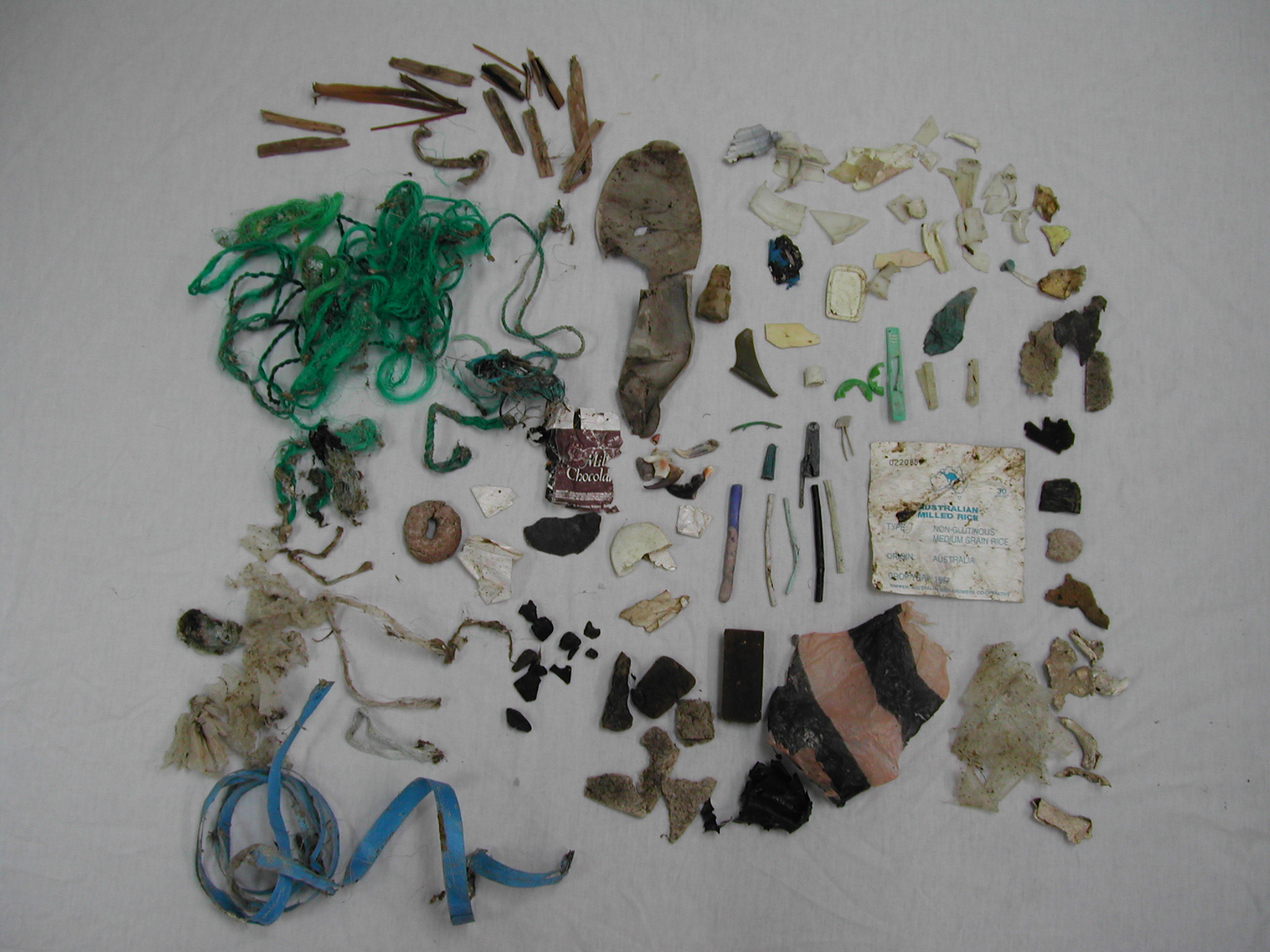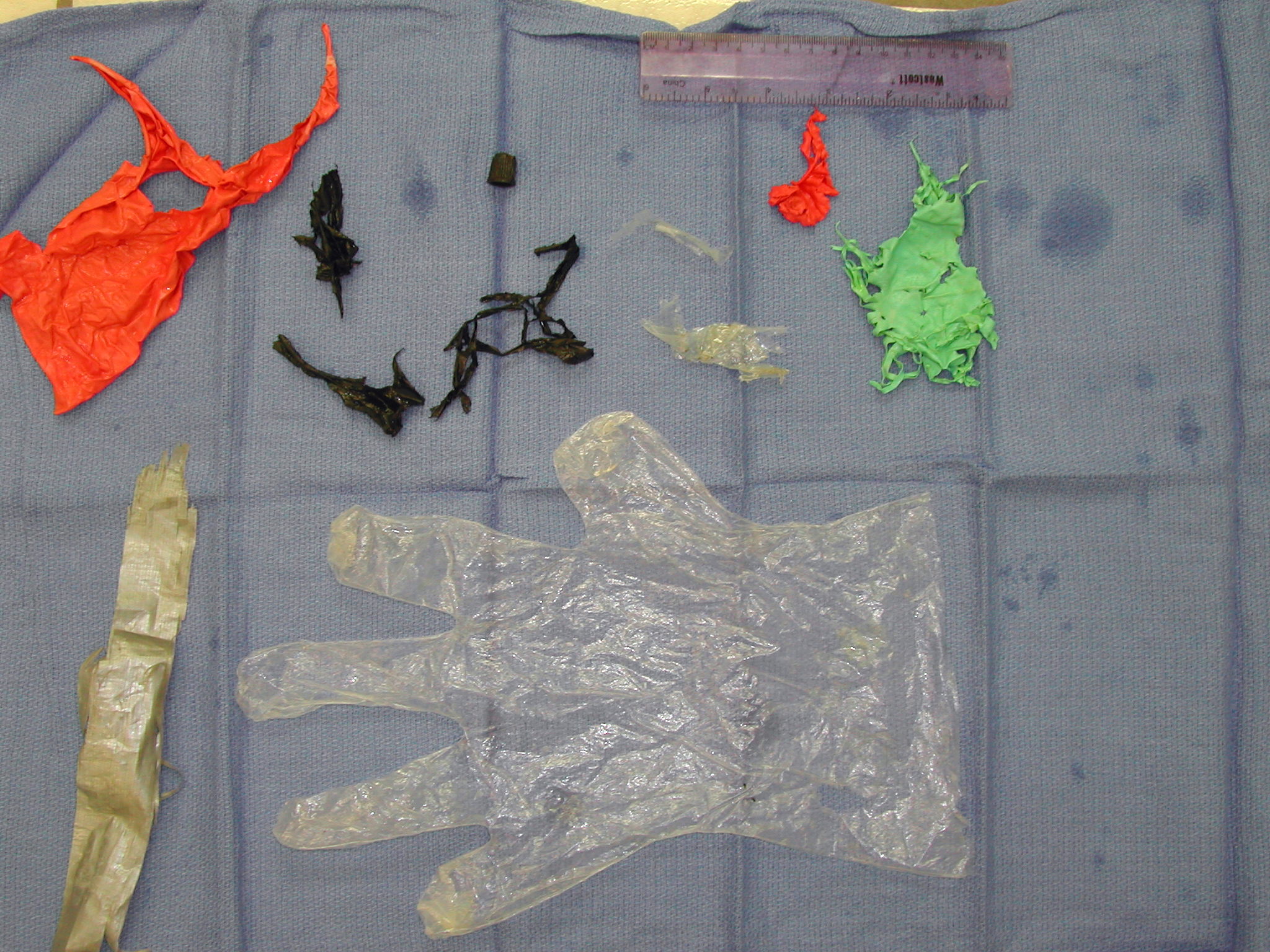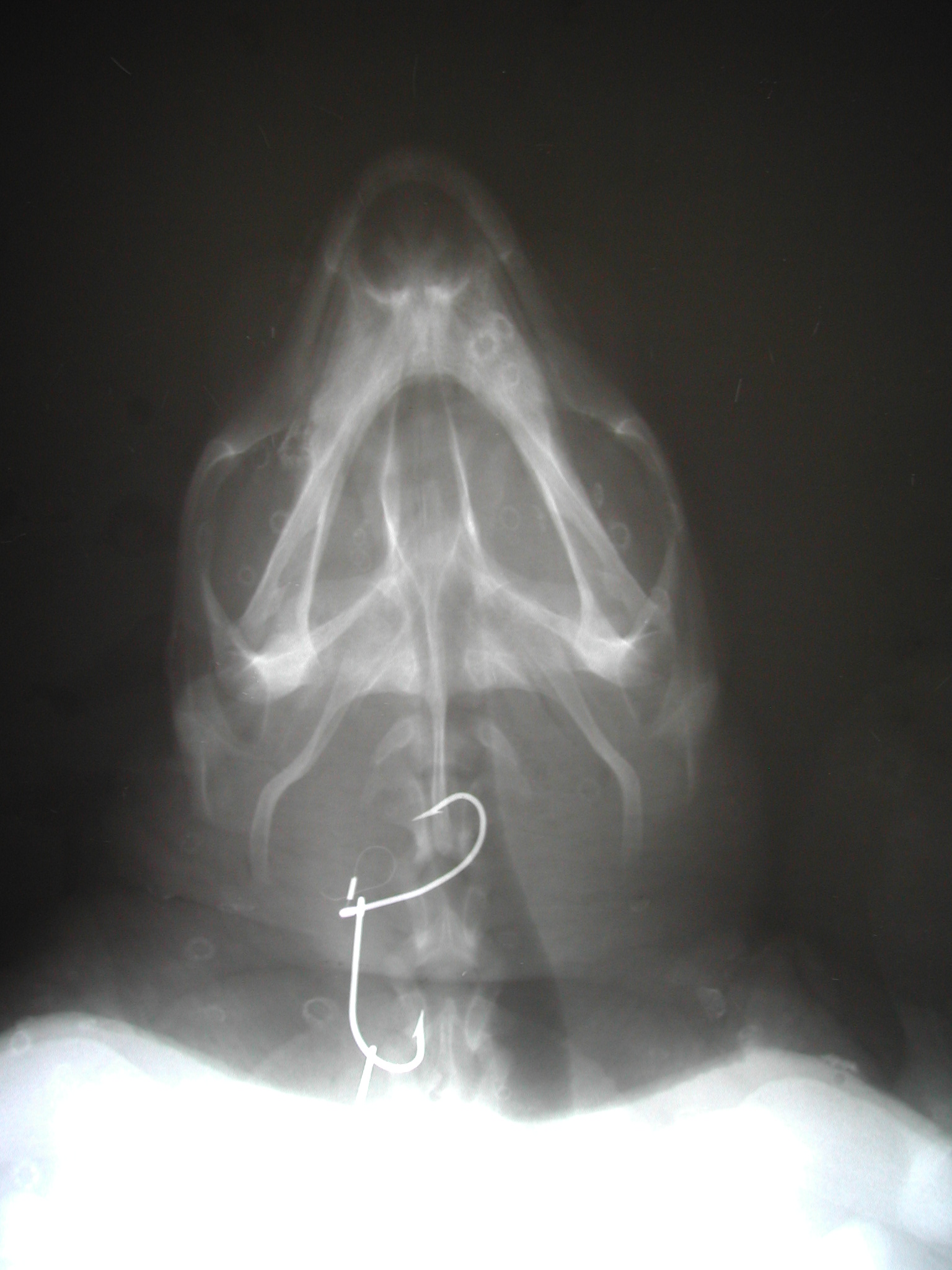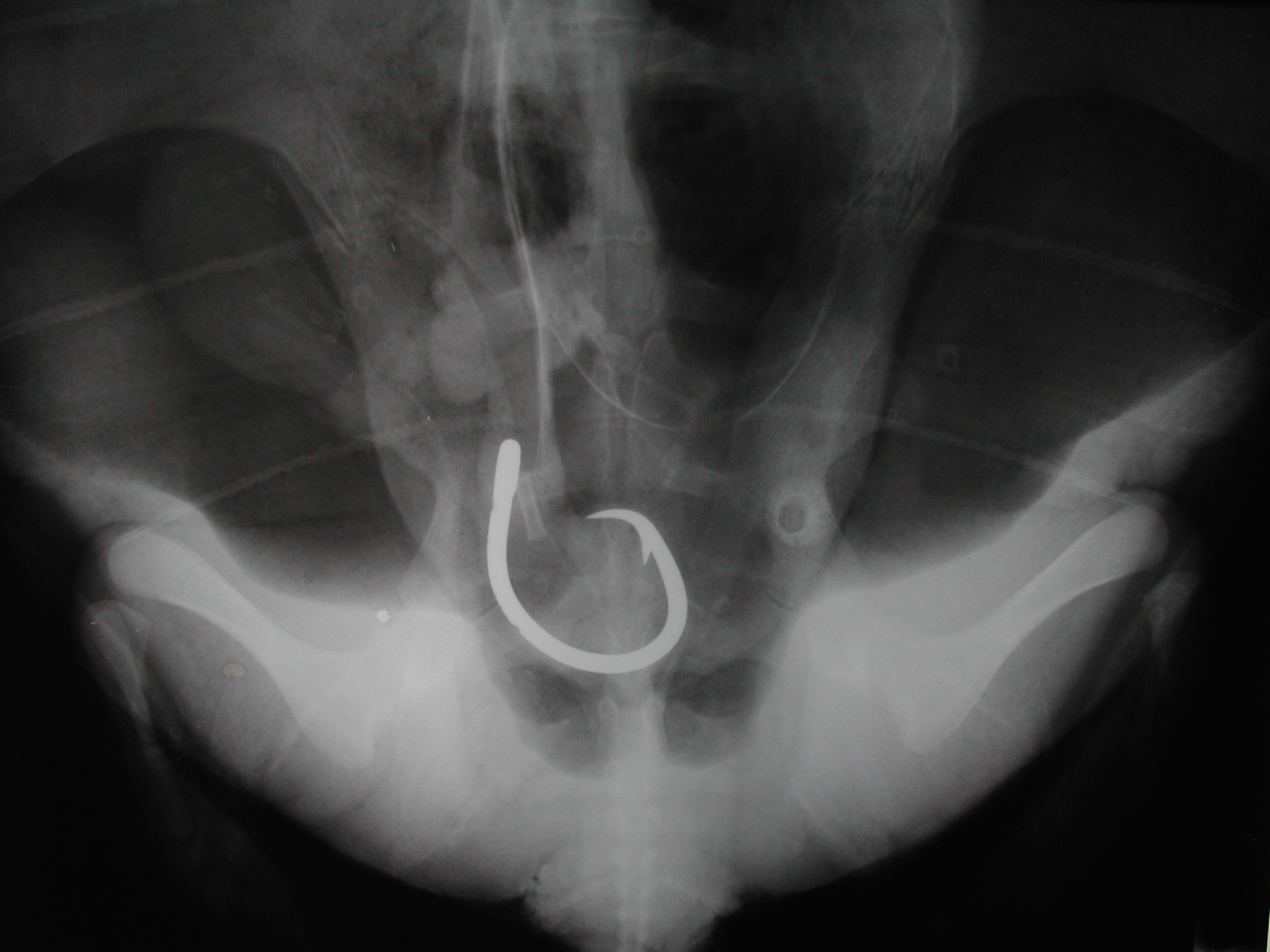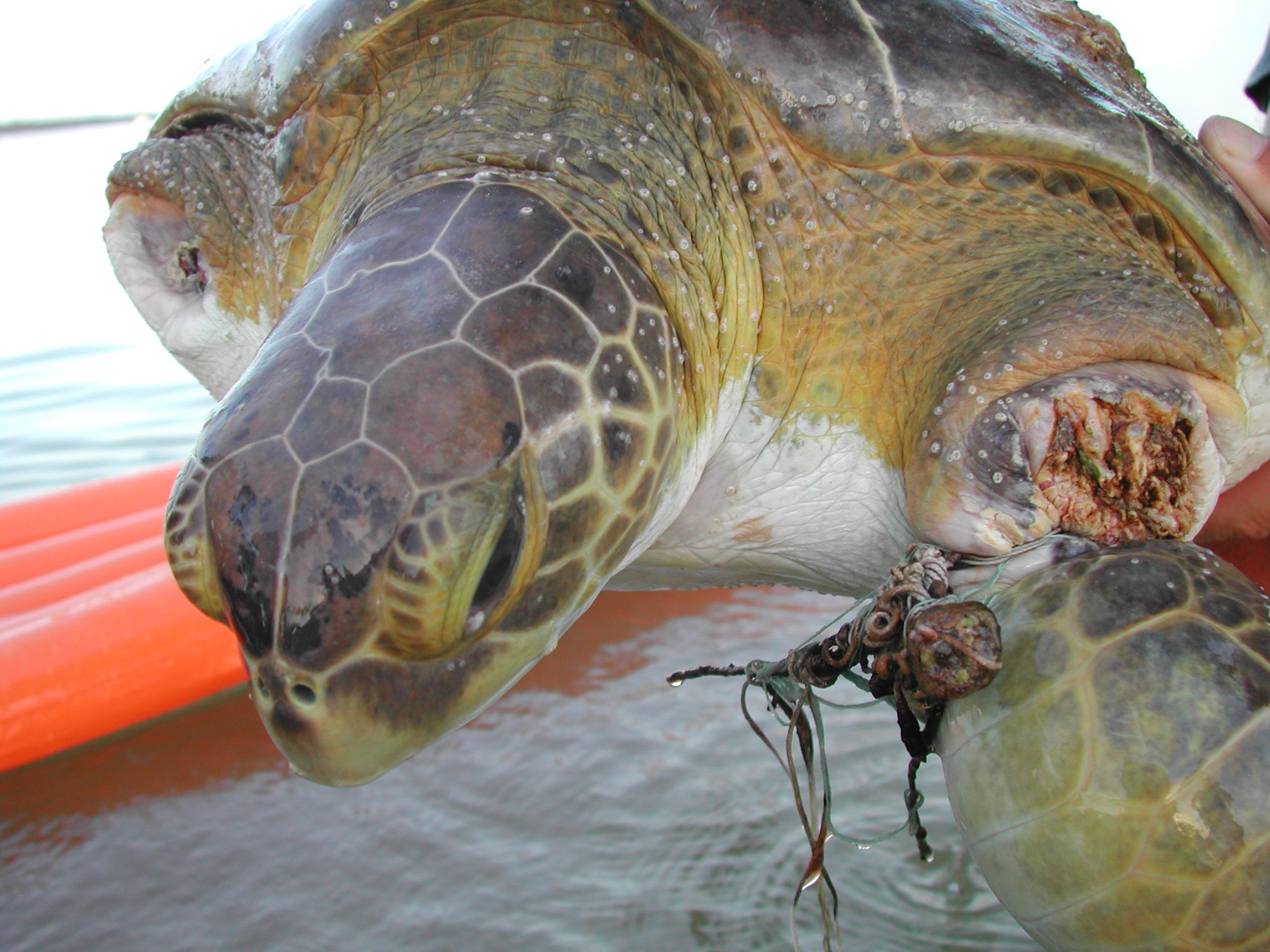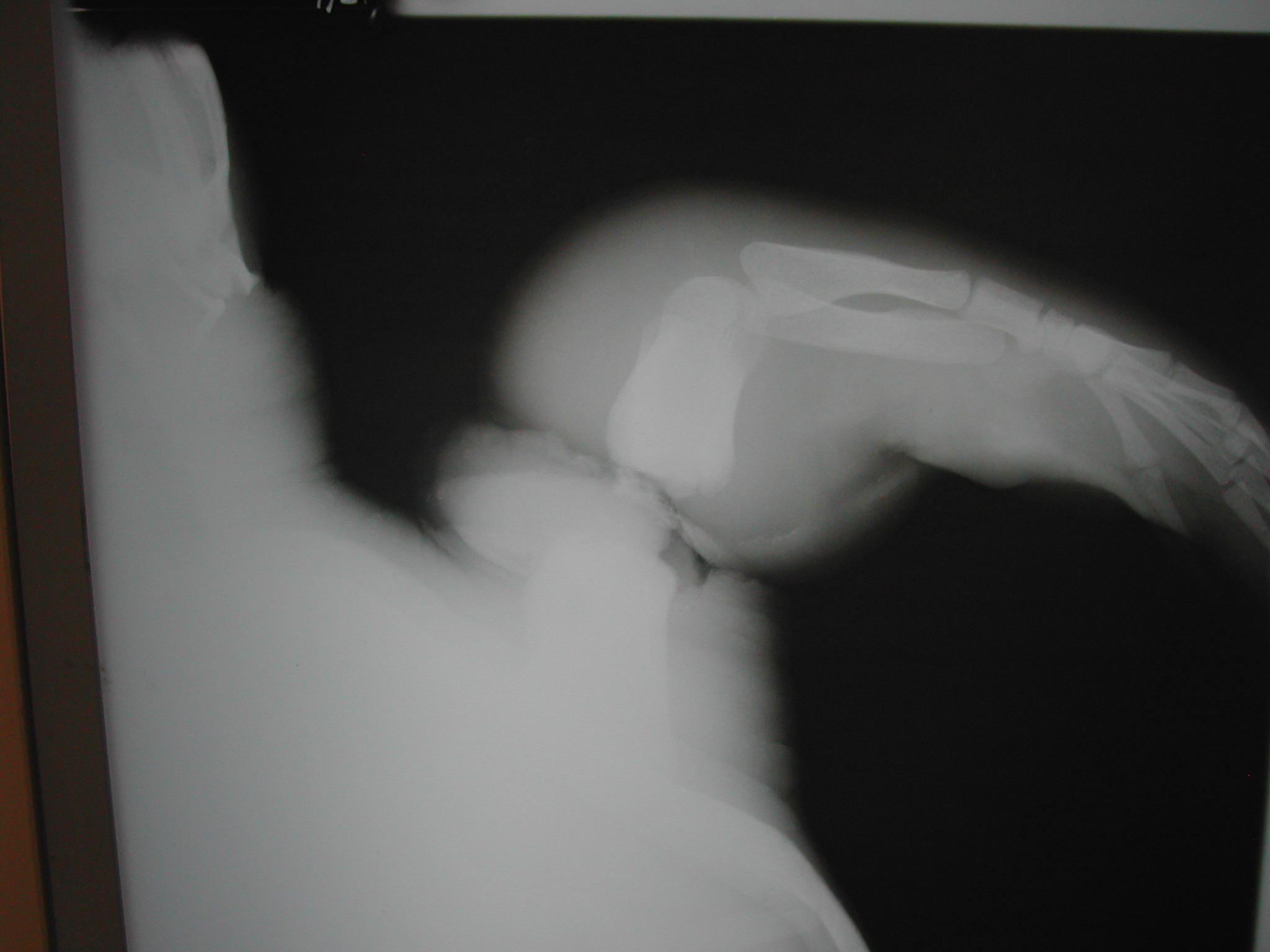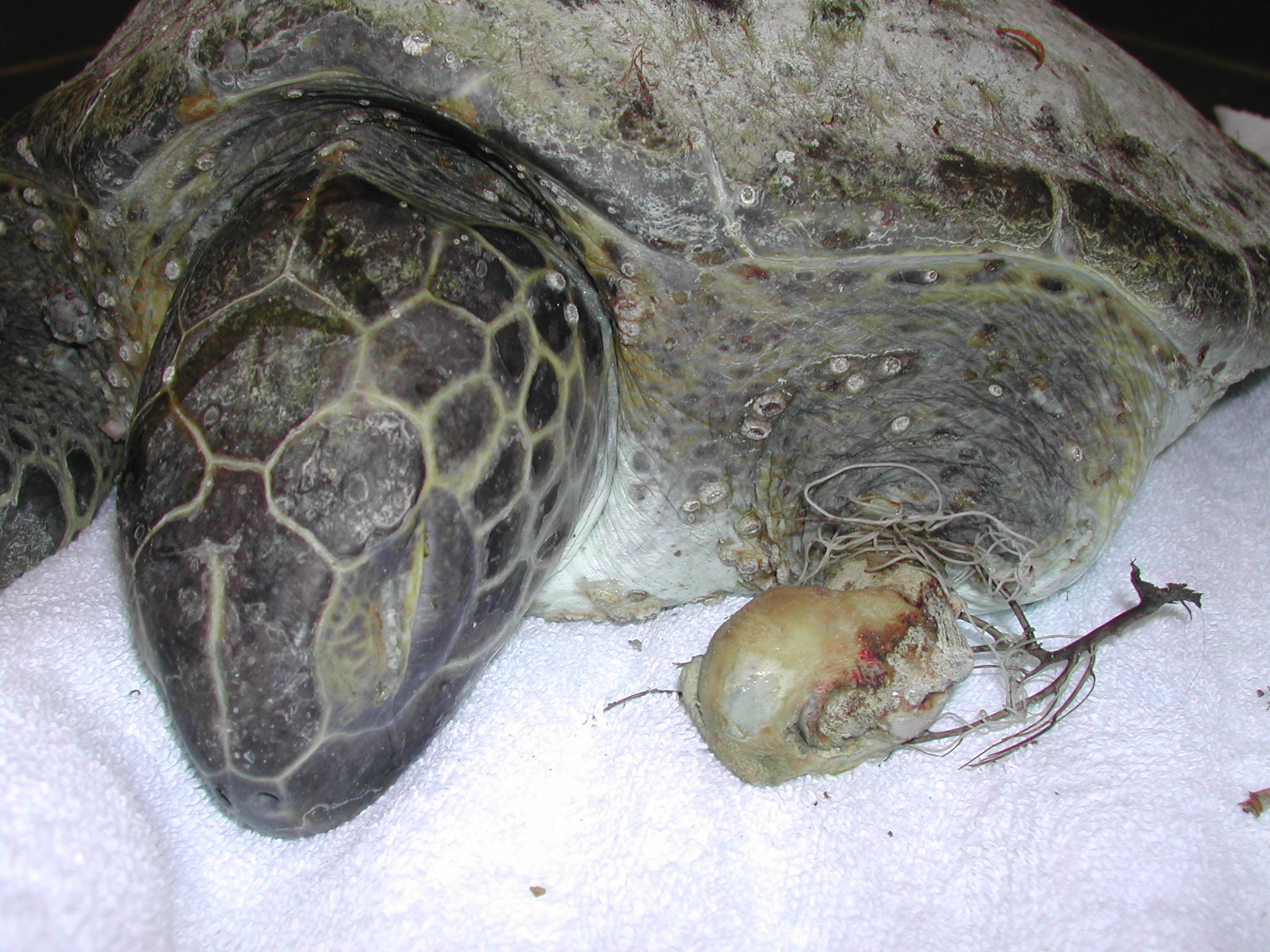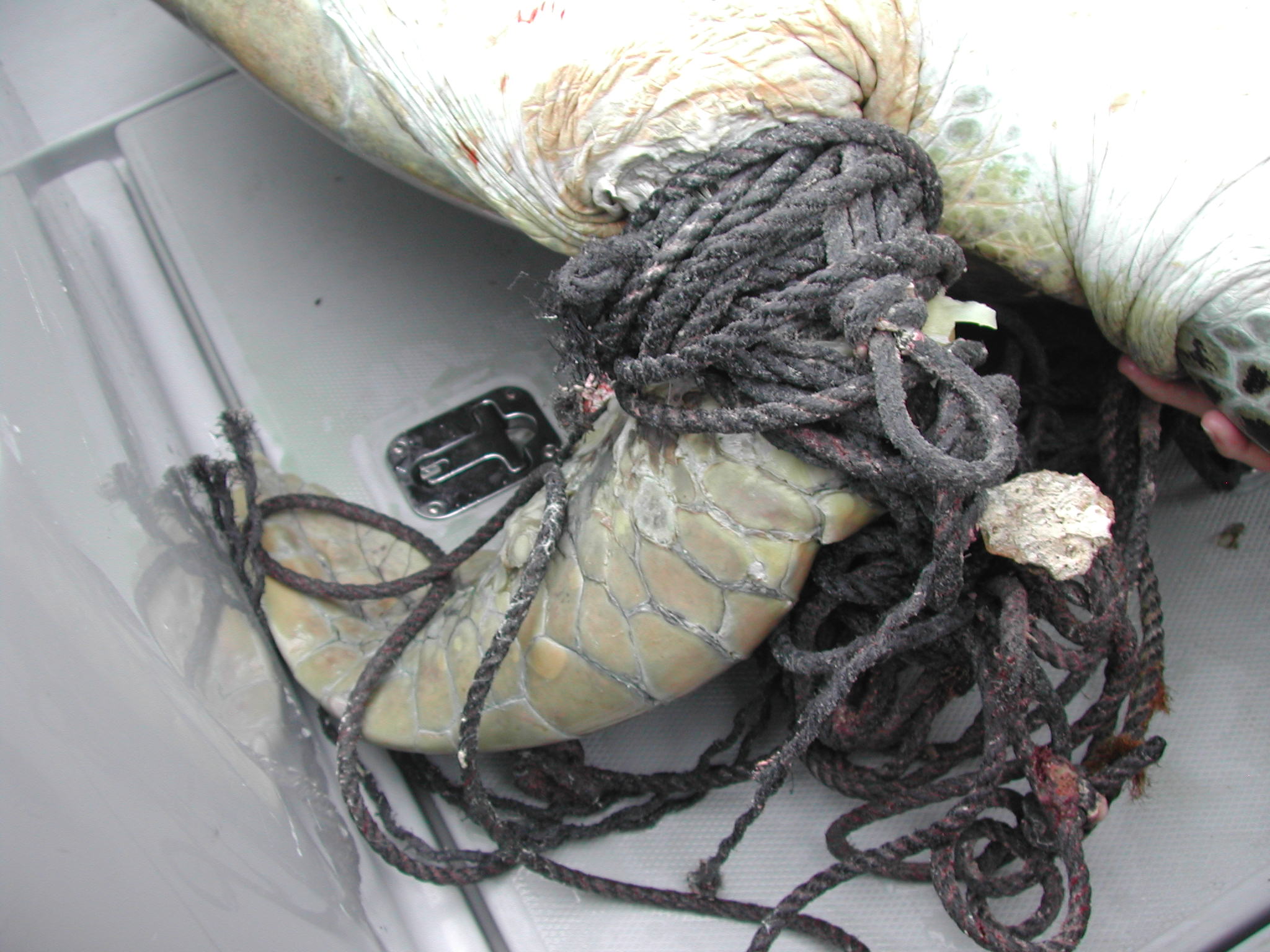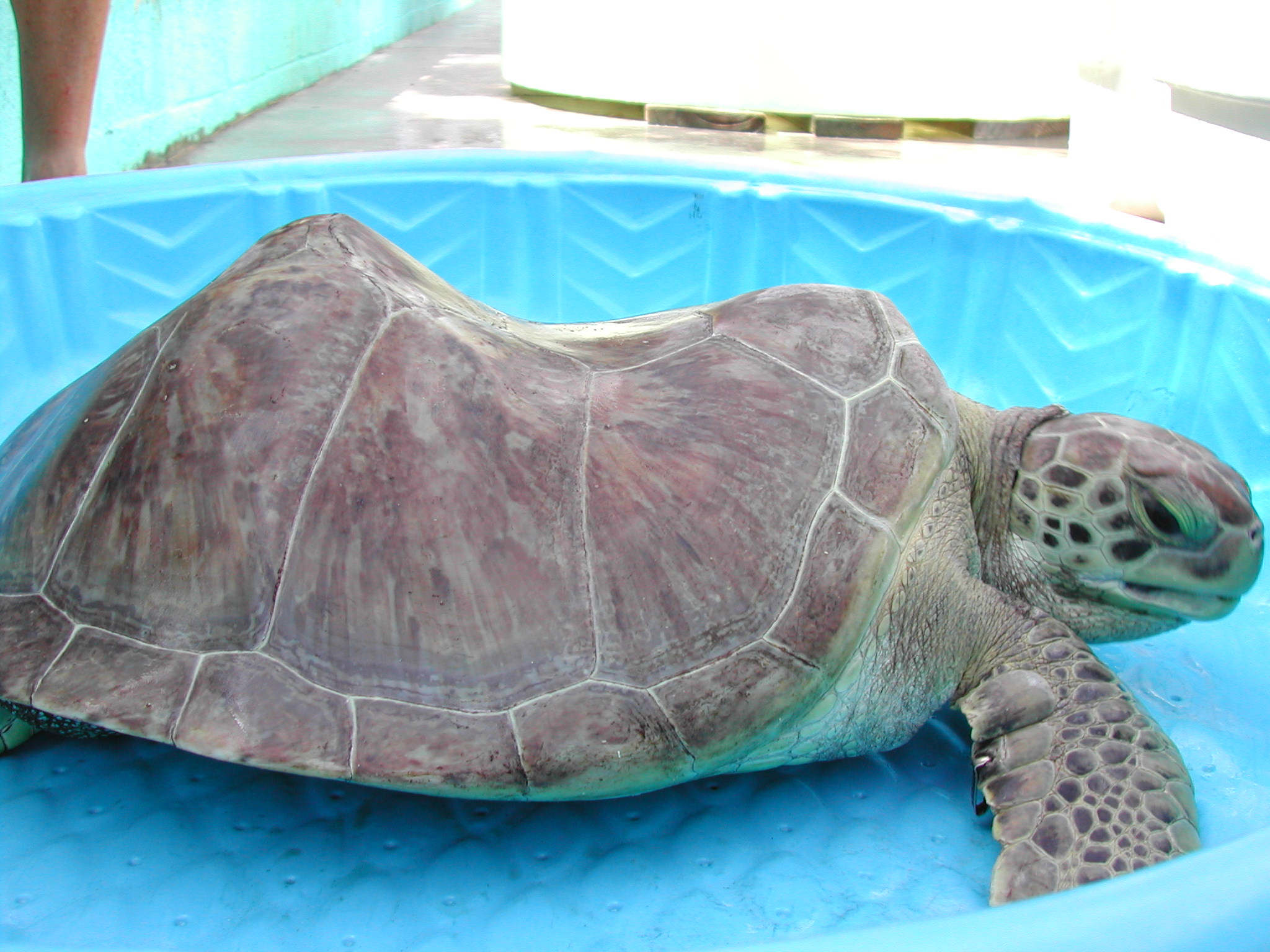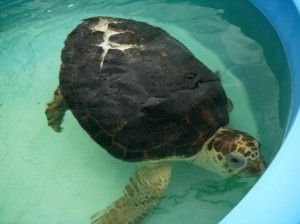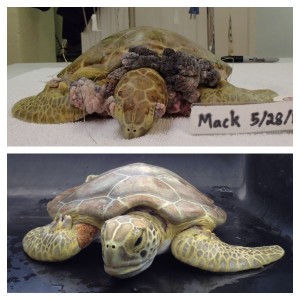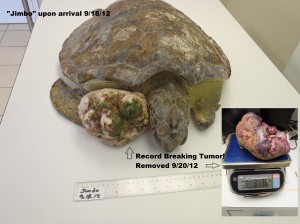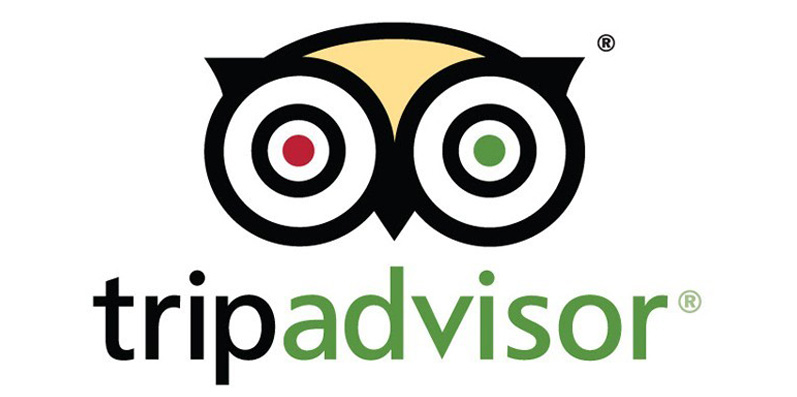The Florida Keys is home to some of the most beautiful water and coastlines in the world – an enchanting allure for boaters, fisherman, and tourists. Every year millions people from around the globe make the journey. Likewise, sea turtles have been drawn to these pristine waters for millennia. The beauty that boaters seek is a reflection of the rich ecosystem sought by the turtles and other marine life. However, this interaction between human and animal has brought both positive and negative effects to the ecosystem.
IMPACTIONS
Sea turtles are opportunistic feeders, meaning they will eat just about anything. Unfortunately, it is nearly impossible for a turtle to break down synthetic material once it has been ingested – often causing an intestinal blockage, called an impaction. Majority of the time, these sea turtles have little chance of eliminating the impaction so this condition will eventually lead to starvation. This is just one example of why we need to keep track of how we properly dispose of our trash.
Here at The Turtle Hospital, our impacted patients are treated with a combination of Metamucil, Fiber and Vegetable Oil.
The above pictures are of trash taken from two different turtle’s intestines.
Another type of foreign material that can harm a sea turtle is fishing hooks. The same treatment as an impaction are attempted, but if the hook does snag the esophagus or intestinal wall, it will eventually rust-out in a number of months.
ENTANGLEMENT
Fishing lines and buoys are very detrimental to sea turtles because it can take over 600 years to biodegrade on its own. Fishing is a very popular activity to take part in, recreationally, in the Florida Keys. Each bridge, beach and marina is fitted with monofilament recycling bins to help reduce the amount of foreign material entering the water. If you see a piece of fishing line, pick it up and thrown it away, you will save a life.
Sea turtles swim by moving their flippers in a circular fashion, so quite often if encountered, they will become entangled. Once caught, it is difficult to escape. Injuries can include loss of circulation, leading to a possible amputation, or drownage.
BOAT HITS
Recreational and commercial vehicles can be very dangerous to wildlife, not limited to boats, but including any motored vehicle. If there is a collision between a vessel and a sea turtle, both in the party can be damaged. For the sea turtles, some of the injuries come from the propeller, which causes lacerations to the top-side of the shell. It opens the shell exposing the inner tissue, which can lead to infections and rotting tissue. The Turtle Hospital can treat some laceration injuries with treatments, not limited to: using local raw honey as a natural medicine to heal the wound, leech/ maggot therapy for rotting tissue, and using modern mechanics to increase the speed of healing.
A sea turtle’s shell is hard, but not hard enough to evade injury. A collision can result in deformities to the shell, possibly deeming them non-releasable in the future. These deformations can cause air pockets in their shells, causing the sea turtle to permanently float to the surface. We have termed this floating problem as the Positive Buoyancy Syndrome (or the “Bubble Butt Syndrome”). In 1989, we rescued the first patient with that syndrome and named the individual Bubble Butt, in honor. The Turtle Hospital attaches lead weights to the shell, using a fiberglass-based marine epoxy. This allows the individual to submerge under the surface if they deem necessary. However, this is not a permanent solution because the weights will eventually fall off.

